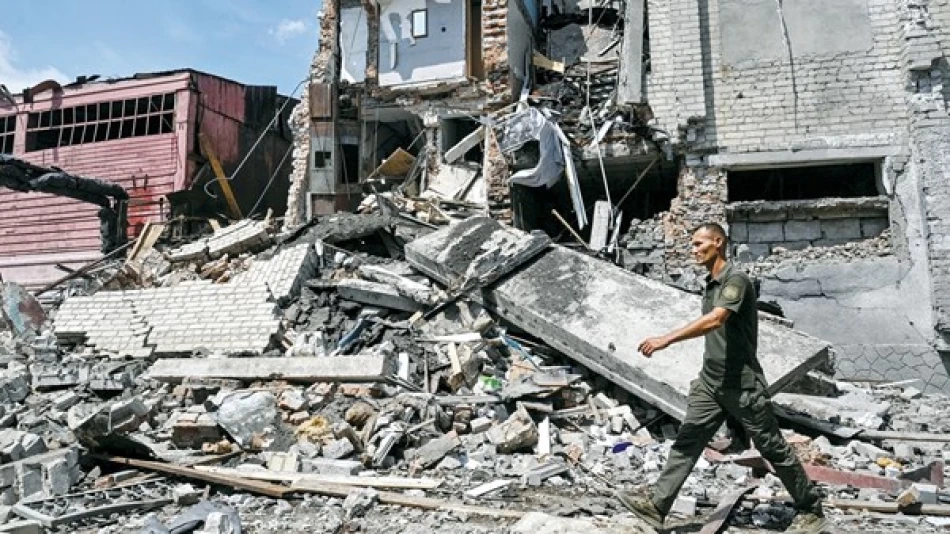
EU Freezes Aid to Ukraine Amid Corruption Allegations: Investigating Misuse of Funds
EU Freezes Ukraine Aid Over Anti-Corruption Concerns, Exposing Critical Governance Gap
The European Union has temporarily suspended all financial assistance to Ukraine following concerns over the country's commitment to maintaining independent anti-corruption infrastructure, according to multiple Ukrainian government sources. The move highlights the delicate balance between wartime support and governance standards, potentially affecting billions in aid as Ukraine faces ongoing military and economic pressures.
The Suspension Details
Four independent sources from Ukraine's government, diplomatic circles, and parliament confirmed that EU officials notified Ukrainian Prime Minister Yulia Svyrydenko of the aid suspension on July 24. The decision directly links continued financial support to resolving issues surrounding the autonomy of Ukraine's anti-corruption bodies.
The timing proves particularly sensitive, as Ukraine's parliament is scheduled to vote this week on new anti-corruption legislation. The previous version of the proposed law sparked significant protests due to provisions that would have limited the independence of anti-corruption agencies — a red line for EU officials who have consistently demanded robust governance reforms as a condition for aid.
Why This Matters Beyond Ukraine
Setting Precedent for Conditional Aid
The EU's decision represents a significant test of its conditional aid framework, similar to mechanisms used with Hungary and Poland over rule-of-law concerns. Unlike those cases, however, Ukraine operates under wartime conditions, making the suspension both more controversial and more impactful.
This approach mirrors the International Monetary Fund's traditional conditional lending practices, but applies them to a country actively defending against invasion. The move suggests that even wartime circumstances don't exempt recipients from governance standards — a principle that could influence future crisis aid packages globally.
Market and Economic Implications
Ukraine's economy relies heavily on international financial support, with EU aid representing a substantial portion of government revenue. The suspension creates immediate fiscal pressure and could affect Ukraine's ability to maintain essential services while funding its defense efforts.
For international investors and creditors, the suspension signals that governance reforms remain a priority even amid extraordinary circumstances. This could influence risk assessments for Ukrainian bonds and reconstruction investments, potentially raising borrowing costs when the country can least afford them.
The Broader Anti-Corruption Context
Ukraine's anti-corruption efforts have long been central to its European integration aspirations. The country established specialized anti-corruption institutions following the 2014 revolution, including the National Anti-Corruption Bureau and the Specialized Anti-Corruption Prosecutor's Office.
However, these institutions have faced persistent political pressure and attempts to limit their authority. The current legislative dispute appears to be another chapter in this ongoing struggle between reformist forces and traditional political interests.
What Comes Next
The parliamentary vote this week will likely determine whether aid flows resume quickly or if the suspension extends indefinitely. EU officials appear to be using their financial leverage to ensure that any new legislation strengthens rather than weakens anti-corruption mechanisms.
This situation creates a precedent for how international donors balance immediate humanitarian and security needs against long-term governance objectives. The outcome could influence similar decisions in other conflict-affected regions where donors must weigh competing priorities between immediate relief and institutional development.
For Ukraine, resolving this dispute quickly becomes essential not just for immediate financial stability, but for maintaining the international confidence necessary for long-term reconstruction efforts. The suspension demonstrates that even under extraordinary circumstances, institutional integrity remains non-negotiable for sustained international support.
Most Viewed News

 Layla Al Mansoori
Layla Al Mansoori






